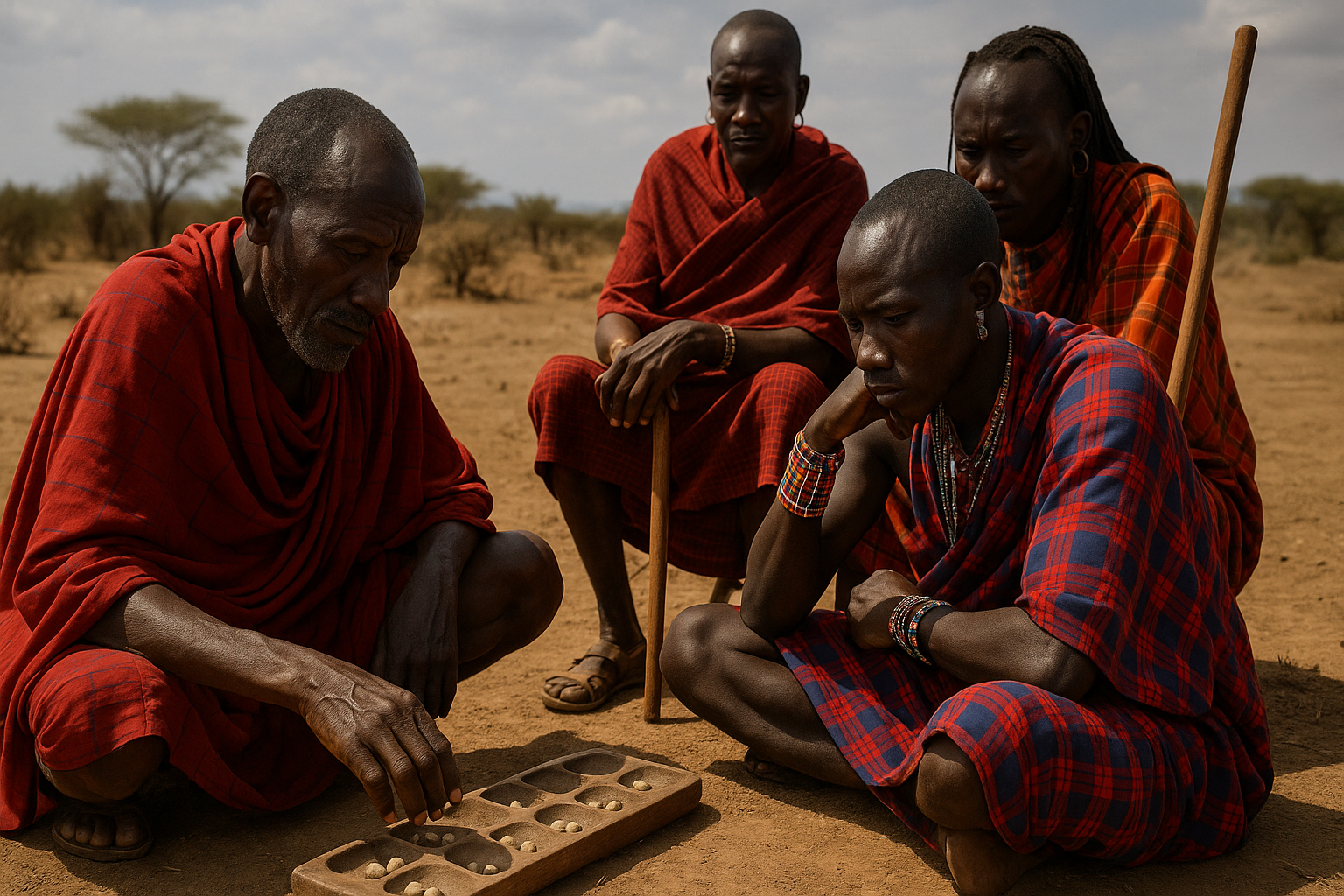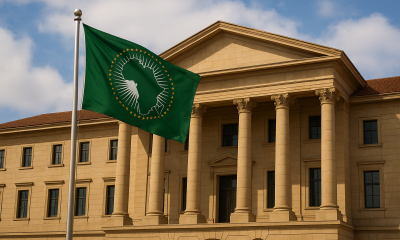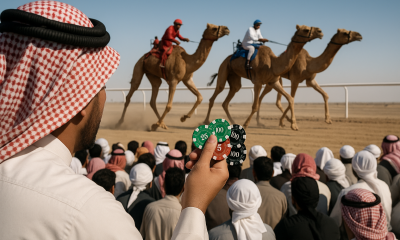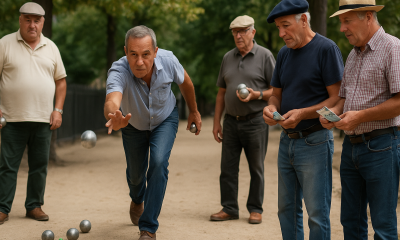around the world
The Unique Gambling Practices of the Maasai in East Africa

Gambling traditions in the 54-nation continent of Africa are diverse to say the least, and many of the historical gambling cultures have been lost to time. The modern gambling scene in Africa is not anywhere near as diverse or luxurious as the gambling Meccas of Las Vegas, Macau, Atlantic City and Monte Carlo. There aren’t special gambling tourist destinations or a sellable game that will bring in the flocks of gamblers from all over the world.
Yet the gambling culture in Africa is quite deeply rooted and encompasses a variety of different rituals, games, and even fortune telling practices. A good example of this very local, very niche type of gambling is in the Maasai culture. Located in Kenya and northern Tanzania, the people mainly herd cattle. Though they are also recognisable by their vibrant clothing, colourful dances and for being relatively tall – averaging 6′ 3″ (190.5 cm). Their gambling traditions may be lesser known, but they give us an intriguing glimpse into how gambling works in nomadic tribes, and possibly how mainstream gambling may have looked across the continent.
Introducing the Maasai People
The Maasai people are spread out across Kenya and northern Tanzania, and have inhabited the Great Rift Valley for centuries. They are primarily cattle rustlers and herders, though the Maasai are also known for their fearsome warriors. Traditionally, they are monotheistic, worshipping a single god that is represented by two colours, black and red. The religion has a central figure, the laibon, who is a shaman healer, fortune teller and prophecy maker. But nowadays, many Maasai people have integrated with modern society.

There are Maasai people who have converted to Christianity or Islam, and they even have contact with tourists. Some make jewellery and craft goods to be sold. Many Maasai people nowadays have moved on from the nomadic lifestyle. And the governments help to create employment, modern education, and even business opportunities for them.
And yet there are Maasai people who hold onto their rituals and customs, living the nomadic life and herding cattle. You wouldn’t think of them as people who would necessarily gamble. Not in the context of slot machines, playing cards or with other gambling games. But gambling in the Maasai culture is not the same as the gambling in modern society.
Role of Gambling and Luck in Nomadic Society
Gambling in a nomadic society is not a means through which people risk currency or goods for financial gain. There are no payouts, formal bookmakers, or mathematical assessment of risk. The gambling here is more of a means of testing fate, or asking for divine favor. For instance, the gambles could be communal wagers on animal races, stick fighting contests, or games involving strength and perhaps some strategy. All of these attributes point towards the survival value, one of the most vital communal values.
Now that does not mean that these gambles and risks don’t involve any kinds of wagers or leisurely angle as well. Informal wagers, agreed proposition wagers, and other social betting provided onlookers and the participants with extra motivation. A cattle herder could propose to bet on their animals to outrun any others. And perhaps, set up a trading agreement with any contenders who put their cattle to the test. Or, young warriors could gamble valuables against each other in the Adumu, a high jump dance.
Maasai Enkeshui and Social Gambles
Perhaps the most well known game of the Maasai is Enkeshui, a variant of traditional African Mancala. This is a game with pits and seeds, in which players must fill their designated pits with more seeds than their opponent. It is a turn-based racing game with a strategic edge, and it adds a few more complexities to basic Mancala. This is not a game of pure chance, as there are no dice or other elements to randomise the gameplay. The turns are completely in the hands of the players, making it a game of wits.
Yet because of the additional rule – bull pits, special moves and switching the order of the sowing – Enkeshui has many more probable outcomes. Therefore, this becomes a game of anticipating the other player, setting up traps, and premeditated strategies. Enkeshui can also draw its fair share of gambling proposition wagers. Of course, these would only be friendly or social wagers, with no house involved. Because there is no way of assessing the odds or weighing up the players’ abilities against each other. It is a wager based on confidence in a player, luck, and ability.

The Old vs the New – Gambling Traditions
Like countless other tribes in Africa, the Maasai are no strangers to the collision of urban life against nomadic tradition. In between cattle herding, warrior dancing and shamanistic rituals, you may see a Maasai person open a mobile phone, or a child listening to a Walkman. Some may turn their back on technology, but some circles embrace new technologies and use them in daily life. They have even encountered several types of modern gambling.
For instance, sports betting has found an audience in young Maasai male enthusiasts. Instead of betting on goats jumping over rocks, they may be placing bets on Manchester United’s striker to score 1.5+ goals in the next Premier League match. Or, ditching the Enkeshui for a soccer parlay on Newcastle, Liverpool and Arsenal to win their upcoming games the following weekend. The attractions of modern day gambling, and the thrills it brings are practically revolutionary in the eyes of a nomad whose only experience with gambling was as part of a social ritual or community building activity.
How Gambling is Interpreted in Indigenous Culture
Nomadic tribes don’t necessarily look down on modern gambling, or risk taking activities. If someone gambles carefully, without endangering their families or livelihood, and wins, they may be considered wise. However, gamblers who develop addiction, lose their livelihoods and become obsessed, would be seen as weak. Taking the middle ground, a careful bettor loses but continues to gamble. In nomadic tribes, the activity wouldn’t necessarily be shunned. The gambler is bold, which is a good trait, and they have “not yet been rewarded for their efforts“.
However, there is still a stigma around modern gambling, not among nomadic tribes, but the rest of Africa. There are associations in mainstream society that put gambling together with addiction and poverty. It is not the case for everyone, as there are many Africans who dabble in sports betting, slots, roulette, blackjack, and other casino games. Going back to the nomadic tribes, the concept of real money gambling may not completely align with their belief systems. This is because their gambling customs are more about community, and they are all controlled so no one is betting more than they can afford to lose. Plus, it revolves around skill, confidence and strength.

Where Africa Stands Today on Gambling
Africa is a fast moving industry in the digital gambling world, and mobile betting and gaming apps have been revolutionary across the country. Soccer (football) betting, specifically on the English Premier League, is the most popular form of gambling in Africa. A 2025 study showed that 60% of respondents mainly bet on soccer games. Now the African “modern” gambling market is still in its infancy, when compared against Macau or Las Vegas. But the digital market has grown exponentially in the last decade. Besides football betting, most African gamblers go for casino games. The most popular of these aren’t the traditional baccarat, blackjack, roulette or poker. No, of all the casino games out there, crash style games have found huge success in Africa.
The biggest gambling industry in Africa are in South Africa, Nigeria, Kenya, Tanzania, Ghana, and Uganda. Naturally, the northern African countries, most of which are Islamic, ban gambling in almost all its forms. Landbased gambling is regulated to varying degrees, but online gambling is less so. Yet even where online gambling is not regulated, or there are no local operators, betting and gaming platforms have found their way into Africa.
Naturally, this will raise concerns, but for any Africans, as long as you are playing on a licensed online casino that is regulated abroad, such as in Curacao, Malta, the UK, or other leading gambling authorities, you can rest assured, the site is legitimate and safe to play at.
Future of Gambling in Africa
The African gambling landscape is continuously changing, and legislation, license approvals, and safer gambling initiatives are all slowly making their way into the industry. And the stigma around gambling is gradually dissolving among the new generation of gamblers and sports bettors.
So the future for casino gaming and sports betting looks bright across the 54-nation continent. But you should always due your research, and only sign up to a site that holds proper licensure. And, don’t forget to play responsibly, never spending more than you can afford to lose.











